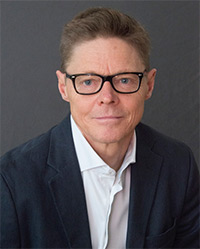Mr. Morris Tidball-Binz
Special Rapporteur on extrajudicial, summary or arbitrary executions

Mr. Morris Tidball-Binz was appointed the UN Special Rapporteur on extra-judicial summary or arbitrary executions, on 1 April 2021.
Mr. Morris Tidball-Binz (Viña del Mar, Chile, 1957) is a medical doctor specialized in forensic science, human rights and humanitarian action. He contributed to the development and worldwide use of forensic science to investigate and document extrajudicial, summary or arbitrary executions, enforced disappearances, torture and detention conditions, as well as to humanitarian action in armed conflicts and natural catastrophes. Over the past 35 years, he has conducted fact-finding, technical assessments and capacity building missions to over 70 counties in all regions.
He is currently an Adjunct Clinical Professor in Forensic Medicine, School of Public Health and Preventive Medicine, Faculty of Medicine Nursing and Health Sciences, Monash University, Australia and a Visiting Professor of the Department of Forensic Medicine, Ethics and Medical Law, Faculty of Medicine, University of Coimbra, Portugal and of the Department of Biomedical Health Sciences, University of Milano, Italy.
As a medical student working for the Grandmothers of Plaza de Mayo in Argentina, he participated in the creation of the first-ever genetic database to locate victims of enforced disappearances and their relatives. In 1984, he co-founded the Argentine Forensic Anthropology Team, an organization that pioneered the application of scientific methods to investigate serious violations of human rights and crimes against humanity, which he directed until 1990.
From 1990 until 2003, he directed regional and global human rights programs for Amnesty International (UK); the Inter-American Institute of Human Rights (Costa Rica); Penal Reform International (UK) and the International Service for Human Rights (Switzerland). From 2004 to 2020, he worked for the International Committee of the Red Cross (ICRC), where he helped to establish and served as the first director of the Forensic Services and Unit.
He participated in international standard setting, including the Istanbul Protocol and the revision of the Minnesota Protocol, for the documentation of torture and of potentially unlawful deaths, respectively, as well the ICRC Guide on the Investigation of Deaths in Custody. He has published extensively, organized courses and lectured in areas of expertise, including in universities and scientific associations worldwide. He is a member of a number of scientific entities and publications, serving on boards of directors and editorial boards.
Throughout his career, he has worked closely with victims of human rights violations and their relatives. He has also advised governmental, inter-governmental and non-governmental entities, including human rights mechanisms of the United Nations, the Organization of American States and the African Union, and served as expert witness and technical advisor for international, regional and domestic courts and commissions of enquiry.
Mr. Tidball-Binz is the recipient of three Honoris Causa Doctorates, including from the National University of La Plata, Argentina, his alma mater, for his contribution to forensic science applied to human rights and the development of humanitarian forensic action.
A citizen of Chile and of Argentina, Mr. Tidball-Binz, a father of four, currently resides in France with his wife and their two children. He is fluent in English, Spanish, Portuguese and understands French.
Download print-quality photo.